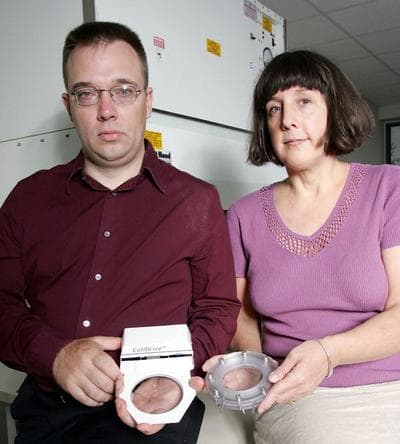Advertisement
Boston U.S. Attorney Reviewing '93 Mail Bomb Probe
The U.S. attorney in Boston is reviewing the 1993 delivery of a pipe bomb to the home of a Boston doctor, following the arrest of Amy Bishop on murder charges in Alabama two weeks ago.

Bishop and her husband were questioned at the time but not charged in the pipe bomb incident.
"We have commenced a thorough review of the information related to this incident to
confirm that all appropriate steps were taken in that matter, and to determine whether
information related to this incident may be of assistance to other law enforcement agencies," U.S. attorney Carmen Ortiz said in the statement.
Ortiz said her office will not comment further until the review is complete.
The statute of limitations on the charge of mailing an incendiary device expired in 1998.
Seventeen years ago, federal prosecutors questioned Bishop and her husband, James Anderson, after a pipe bomb was mailed to the Newton home of Children's Hospital Dr. Paul Rosenberg. The pipe bomb did not explode.
In the 1993 case, Rosenberg told authorities Bishop had resigned her job as a postdoctorate research fellow with him around the time he was mailed the pipe bomb. Rosenberg said that "he had been instrumental in her leaving because he had felt she could not meet the standards required for the work," according to a report by the U.S. Bureau of Alcohol, Tobacco, Firearms and Explosives.
A witness also told the ATF that Bishop's husband, James Anderson, said "he wanted to get back at victim Dr. Rosenberg and that he wanted to shoot him, bomb him, stab him or strangle Rosenberg."
Bishop was arrested Feb. 12 on charges she opened fire on her colleagues at the University of Alabama at Huntsville, killing three people and hurting three others. Police have not offered a motive, but colleagues say she had complained for months about being denied the job protections of tenure.
Since the killings, stories of violence in Bishop's past have surfaced.
She killed her brother with a shotgun in 1986, which authorities at the time ruled an accidental shooting. The investigation has been broadly criticized in light of the Alabama case.
The Associated Press contributed to this report.
This program aired on February 24, 2010. The audio for this program is not available.
